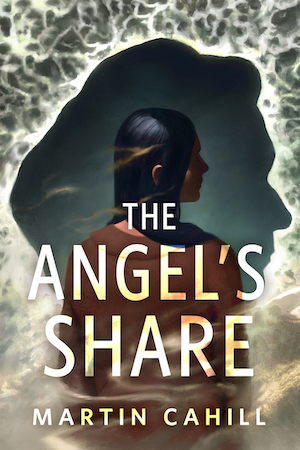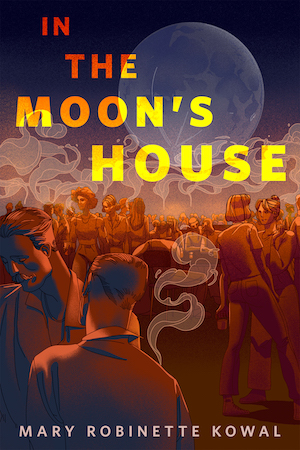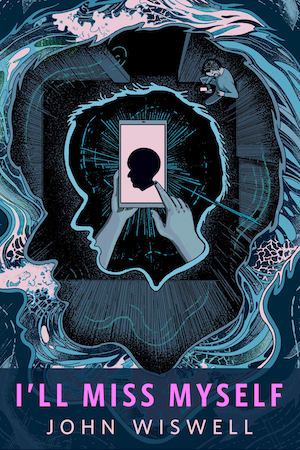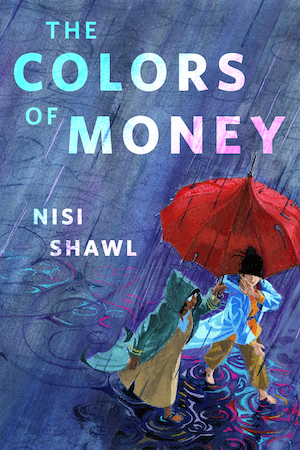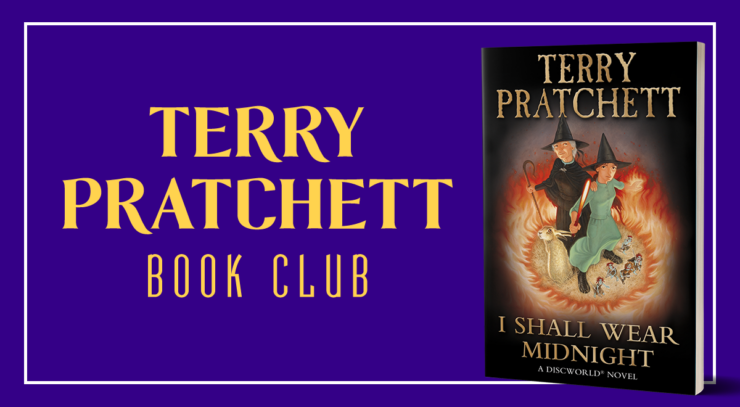The hare runs into fire…
Summary
Tiffany and Letitia talk about how she can do magic and where it might come from in her family. They have to head back to her home because that’s where she left the spell she cast on Tiffany. On getting there, Tiffany finds that Letitia is absolutely a witch and helps all the ghosts at her estate. They head to the family library where Tiffany smells something awful and they find Letitia’s spell and the answer to why it worked: She cast it next to the book written by the Omnian priest who became the Cunning Man. That is the reason why all this has happened. Tiffany tells Letitia that she has to tell Roman what she did and clean up her own messes, like a witch should. Tiffany sleeps in the dungeon to find that Preston keeps entering to take care of her. When she wakes, he tells her that the Baron wants to see her, but Tiffany insists on seeing the old Baron first, and making the cellar cold enough to preserve his body. She learns that Preston has a talent for healing, but he can’t become a doctor because it’s too expensive. Roland apologizes to her after being told about the plot against Tiffany by his wife-to-be, and Tiffany accidentally says she’ll marry him. They both ignore this, and agree and everything is incredibly fraught at the moment—they must get on with the funeral and the wedding.
Letitia ask to see Tiffany privately, and Tiffany realizes that she needs to have the birds and bees conversation before her wedding. Then Tiffany talks to the Feegle, currently being managed by Wee Mad Arthur who has decided to give up his badge and stay home. Tiffany promises that the Feegle mound will never be threatened again. She’s looking at an old war tapestry in the castle and sees the Cunning Man moving toward her through it. She hinks to burn it, but she wakes up inside the tapestry, in “the traveling” with Eskarina. The wizard warns her that if Tiffany fails to stop the Cunning Man, the other witches will have to kill her or all witches will fall with her. Tiffany threatens the tapestry and the Cunning Man backs off, afraid of fire. Preston tells Tiffany that he was watching over her while she had witch business, and demands that she rest. Back int the city, Mrs. Proust finds out that a man who was supposed to hang broke out of jail in a manner most disconcerting. She makes to grab her broom, knowing she needs to go to the country immediately. It’s the day of the funeral and Granny and Nanny have arrived with Verence and Magrat for no reason at all.
Nanny gets the funeral in high spirits with music and happens to notice Preston and Tiffany, of course. Mrs. Proust lands on the roof with Mrs. Happenstance in tow along with her apprentice Miss Cambric, and warns Tiffany that the Cunning Man now has a body to control. She also recognizes the Duchess and knows that the woman used to be a dancer in a music hall. Tiffany invites her to go downstairs and meet the other witches, then finds that Nanny took her suggestion to give Letitia a more informative birds and bees talk. The Duchess is a bit drunk and apologizes to Tiffany for how she’s behaved; Tiffany tells Letitia to go speak to her mother. Granny tells Tiffany that the witches are wondering if they shouldn’t insist on helping her (they’re all here to kill her if she fails), but Tiffany is adamant that she can handle this mess. Nanny says the men came back from the stag night without Roland, so Tiffany tells Preston. She has to leave and fight a monster; he insists on going with her to protect her. Tiffany tells the Feegles they have to stay out, but brings Preston along. They find a drunk Roland in a pigsty, and Letitia comes out too, searching for him. Tiffany tells them they have to do what she says if they want to live, which they agree to, but aren’t happy about. As they run, Preston sets fire to the stubbles. The land begins to burn. Tiffany holds the couple’s hands and marries them as they jump through the fire—fast enough not to be seriously harmed by it, but the fire burns the Cunning Man. Tiffany sees him off.
The wedding occurs, and Tiffany learns that Preston has asked around about how old she is (he is a year older). Roland says that Miss Spruce was caught with the money the old Baron left to Tiffany, who tells Roland to keep it with a few requests on her end: that Amber get a dowry so her young man can apprentice to a master craftsman (he made Letitia’s wedding dress); that other young people on the Chalk get the same opportunity; that the old barn on Home Farm be made into a school (where sex ed gets taught) and that Preston be its first teacher, so he can earn enough money to become a doctor; and that the downland be given in law to the Feegle. Roland agrees to all these terms. Tiffany is brought to the traveling again by Eskarina to meet her older self wearing a golden hare necklace. She tries to ask a question, but is only told to listen. Granny tells Tiffany she did a woman’s job today, and that she should start training witches herself soon. The next year at the fair, Amber and her husband give Tiffany a gift—William made her a beautiful black dress. Then Preston stops by to talk to her about his doctor’s apprenticeship and gifts her the golden hare necklace. He asks her what the sound of love is, and she tells him… to listen.
Commentary
The thing is that Preston is good and Preston is smart and those are lovely qualities to be sure… but Preston is the right person for Tiffany because he’s the only person outside her parents who reminds her to sleep and eat. He asks when she last did both and when Tiffany lets him know that she had an hour of sleep last night and a snack the day before, he tells her that snacks and naps are not ways to live—“it’s how people die!”
And that’s a beautiful thing to have in this book aimed at younger readers because far too many of us get raised on romcom love, which is cute, but all about chemistry. Chemistry is great. It makes for snappy dialogue and the belief that folks would climb into bed together. It does not give people any idea of what it means to have a partner in life. Which is ninety percent about helping to keep another person alive because you love them. That’s it. That’s the whole thing. It’s not glamorous or exciting, but it is beautiful.
I am literally saying this as my partner deposits dinner in front of me because I would probably eat once a day without intervention. I forget! That is not my strong suit in a relationship. This is why I’m alive, and it would be underselling to say that I find that considerably more romantic than “chemistry.” Not that chemistry has no value, but it’s an extra, yes? Like a car sunroof. It’s fun, but you don’t need it—you need an engine that runs. And that puts me too close to Nanny Ogg joke territory for comfort, so I’ll move on. The point is, Preston is great and great for Tiffany specifically.
Outside of that, this book is largely about how community functions, and when and how it doesn’t, and how we can protect ourselves from its dysfunction when it arises. One of the places where this begins to stick out to me is in Tiffany watching Nanny Ogg do what she does best at the funeral, and musing over how she doesn’t have those skills: I wanted to learn fire and pain, but I should have learned people.
Tiffany is only half-right in this instance because every witch has her strengths, but the acknowledgment that knowing people is a precious skill is still central to a lot of the themes here. Nanny is the key example there, because she’s essentially a Bacchus-ian retrofit unto herself. She accesses people through wine, women, and song, which is more fun in this instance because she’s the woman in question, or she’s giving other women tips on how to be the women in question (i.e. her helping Letitia). She knows people by doing her best to engage them where they’re at their best, in moments of merriment, laughter, and connection.
But there are ways of understanding that lean toward solemnity, and Tiffany sees that’s a different sort of magic at the funeral:
It was magic; magic had turned a hall full of people who mostly did not know very many of the other people there into human beings who knew they were among other human beings and, right now, that was all that needed to matter.
It’s a perfect description of those moments, which often do feel like magic. The places where we come together because we know we’re all the same. Even if they don’t last, they have a resonance, a different wavelength. We need them to feel safe.
Just like Tiffany’s first story, there’s couching emotions and attributes that people often frame as selfish or undesirable as heroic traits. Tiffany thinks that to beat the Cunning Man, she has pride, trust, fear, and fire. Pride and fear in particular would normally not rank high on a heroic list, but they should—particularly against a foe like the Cunning Man, who is a codified representation of hatred of the other made whole. Tiffany has no kindness in her heart for this figure, unlike the hiver or the Wintersmith, because Pratchett philosophy makes no room for this kind of bigotry—he aligns it with poison, and knows that it never fully dies:
[…] and though we will never be rid of you, we can certainly make your life hell.
That is the way you combat it. You destroy it with extreme prejudice. There’s no “tolerate my intolerance” argument to be had here. Only destruction without pity or sorrow. And it’s good that Tiffany is always shown to be unyielding in the face of that manner of monstrosity. That we can count of her to live up to Granny Aching’s example in every way.
Asides and little thoughts
- On omens: And it wasn’t good manners, she was sure, to ask for a second sign to tell you if the first sign wasn’t just a coincidence, was it? That’s fair though, they should come in triplicate, some of us are nervous.
- It’s just really important that Tiffany asks for sex education in her school, I’m just saying. Real damn important to frame that here as normal and net good and needed.
- After Preston talks of loving the word susurration, as Tiffany does, it pops up several times in the narrative as we go.
Pratchettisms
There must have been reservoirs in Letitia. She was never more than a teacup away from a tear.
It was one of those things that the brain files under “something I would rather not have seen.”
“Miss Aching, you are showing an almost sinful self-assurance and overwhelming pride and certainty, and maybe I say that I wouldn’t expect anything less of a witch.”
“Can’t abide broomsticks,” she said. “They give me calluses in places where nobody should have calluses.”
We pride ourselves on making a good history of our lives, a good story to be told.
Next week we start the final Watch book: Snuff. We’ll read up to:
He thought Ah, yes, contraband! and, feeling cheerful, and hopeful for the future, he gently closed the window and went back to bed.


